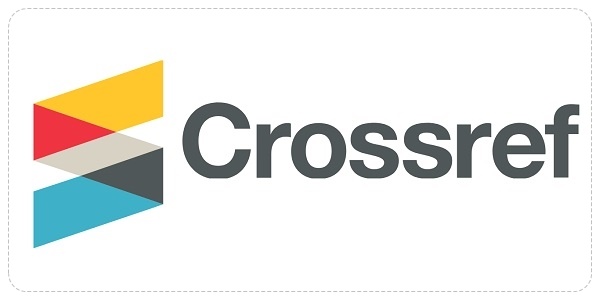Classroom Action Research: Enhancing IPAS Learning Outcomes on Indonesians' Cultural Diversity Using Wordwall to Elementary School Students
Abstract
This research aimed to determine the improvement in learning outcomes in Natural and Social Sciences (IPAS) on the topic of Indonesia's cultural wealth using Wordwall media among Grade IV students at SD Negeri 019 Samarinda Ulu during the 2023/2024 academic year. The study employed Classroom Action Research (CAR) conducted over three cycles, with each cycle consisting of two sessions. The research procedure included four stages: planning, implementation, observation, and reflection. The subjects of the study were 22 Grade IV students at SD Negeri 019 Samarinda Ulu, and the object was the improvement in learning outcomes of IPAS on the topic of Indonesia's cultural wealth using Wordwall media. Data collection techniques included observation, tests, and documentation. Data analysis involved calculating percentages for teacher and student activities, learning completeness, and improvement in student outcomes. The results indicated significant improvement in learning outcomes. Students' completeness percentages increased from the first meeting in Cycle I at 23%, the second meeting at 27%, the first meeting in Cycle II at 41%, and the second meeting at 55%. By Cycle III, the first meeting achieved 64%, and the second meeting reached 82%. In conclusion, the use of Wordwall media significantly improved the learning outcomes of IPAS on Indonesia's cultural wealth for Grade IV students at SD Negeri 019 Samarinda Ulu during the 2023/2024 academic year. The research highlights the effectiveness of interactive media in fostering student engagement and enhancing academic achievement.
Keywords
Full Text:
PDFReferences
Al‐Taweel, F. B., Abdulkareem, A. A., Gul, S. S., & Alshami, M. L. (2021). Evaluation of technology‐based learning by dental students during the pandemic outbreak of coronavirus disease 2019. European Journal of Dental Education, 25(1), 183-190. https://doi.org/10.1111/eje.12589
Ashari, M. K., Rohmah, A. N., & Yudi, U. (2023). Joyful learning with app-based interactive quizzes in senior high schools in the digital era. CENDEKIA, 15(02), 210-228. https://doi.org/10.37850/cendekia.v15i02.528
Astuti, B., Purwanta, E., Lestari, R., Bhakti, C. P., Anggela, E., & Herwin, H. (2022). The effectiveness of digital module to improve career planning of junior high school students. World Journal on Educational Technology: Current Issues, 14(3), 940-950. https://doi.org/10.18844/wjet.v14i3.7396
Bancin, B. S., & Siagian, S. (2019, December). Improving Teachers’ Classroom Action Research Proposal Preparation through Academic Supervision FGD Technique. In 4th Annual International Seminar on Transformative Education and Educational Leadership (AISTEEL 2019) (pp. 9-13). Atlantis Press.
Calderón, A., Merono, L., & MacPhail, A. (2020). A student-centred digital technology approach: The relationship between intrinsic motivation, learning climate and academic achievement of physical education pre-service teachers. European Physical Education Review, 26(1), 241-262. https://doi.org/10.1177/1356336X19850852
Carey, J. C., Beitelspacher, L. S., Tosti-Kharas, J., & Swanson, E. (2021). A resource-efficient modular course design for co-teaching integrated sustainability in higher education: Developing the next generation of entrepreneurial leaders. Entrepreneurship Education and Pedagogy, 4(2), 169-193. https://doi.org/10.1177/2515127420969967
Drake, S. M., & Reid, J. L. (2018). Integrated curriculum as an effective way to teach 21st century capabilities. Asia Pacific journal of educational research, 1(1), 31-50. https://doi.org/10.30777/APJER.2018.1.1.03
Fitria, T. N. (2023). Creating an Education Game Using Wordwall: An interactive learning media for English Language Teaching (ELT). Foremost Journal, 4(2), 17-30. https://doi.org/10.33592/foremost.v4i2.3610
Johan, R. C., Rullyana, G., & Ardiansah, A. (2022). Hyper content e-module in information behavior course with the assistant of screencast. Journal of Education and Learning (EduLearn), 16(2), 210-218. https://doi.org/10.11591/edulearn.v16i2.20339
Kementerian Pendidikan dan Kebudayaan RI. (2003). Undang-Undang Republik Indonesia Nomor 20 Tahun 2003 tentang Sistem Pendidikan Nasional.
Kemmis, S., McTaggart, R., & Nixon, R. (2014). The action research planner: Doing critical participatory action research. Springer Singapore. https://doi.org/10.1007/978-981-4560-67-2
McKnight, K., O'Malley, K., Ruzic, R., Horsley, M. K., Franey, J. J., & Bassett, K. (2016). Teaching in a digital age: How educators use technology to improve student learning. Journal of research on technology in education, 48(3), 194-211. • https://doi.org/10.1080/15391523.2016.1175856
Muzaini, M. C. (2023). Literature review: Penilaian diri dan pengaplikasian Technological Pedagogical and Content Knowledge (TPACK) pada pembelajaran Ilmu Pengetahuan Alam dan Sosial (IPAS) di Madrasah Ibtidaiyah. Didaktik: Jurnal Ilmiah PGSD STKIP Subang, 9(04), 271-289. https://doi.org/10.36989/didaktik.v9i04.1542
Muzaini, M. C., Noptario, N., & Arifin, N. (2023). Implementation of blended learning model through Wordwall application in improving critical thinking of islamic elementary school students. Al-Adzka: Jurnal Ilmiah Pendidikan Guru Madrasah Ibtidaiyah, 13(2), 146-158. https://doi.org/10.18592/aladzkapgmi.v13i2.10880
Nanda, I., Sayfullah, H., Pohan, R., Windariyah, D. S., Fakhrurrazi, Khermarinah, & Mulasi, S. (2021). Penelitian tindakan kelas untuk guru inspiratif. CV Adanu Abimata.
Novyanti, Dewi, H. I., & Winata, W. (2022). Pengembangan media pembelajaran interaktif berbasis kognitif anak dalam pelajaran bahasa Inggris. Jurnal Instruksional, 4, 27–33. https://doi.org/10.24853/instruksional.4.1.%25p
Oviliani, T. M., & Susanto, R. (2023). The effect of wordwall educational game-based learning media on interest in learning natural sciences. IICET, 4(1), 27-33. https://doi.org/10.29210/07essr322200
Panjaitan, W. A., Simarmata, E. J., Sipayung, R., & Silaban, P. J. (2020). Upaya meningkatkan hasil belajar siswa menggunakan model pembelajaran discovery learning di sekolah dasar. Jurnal Basicedu, 4(4), 1350–1357. https://doi.org/10.31004/basicedu.v4i4.549
Peng, Y. (2023). The practice of integration of art education and regional culture towards pedagogy enhancement. Journal of Education and Educational Research, 6(2), 192-205. https://doi.org/10.54097/jeer.v6i2.14990
Purnamasari, S., Rahmanita, F., Soffiatun, S., Kurniawan, W., & Afriliani, F. (2022). Bermain bersama pengetahuan peserta didik melalui media pembelajaran berbasis game online Wordwall. Jurnal Pengabdian Masyarakat, 3(1), 70-77. https://doi.org/10.32493/al-jpkm.v3i1.17052
Putri, F. N., & Rofiq, M. (2023). The effectiveness of the team quiz learning model incorporating Wordwall in PKn learning in islamic elementary schools. Scaffolding: Jurnal Pendidikan Islam dan Multikulturalisme, 5(1), 627-646. https://doi.org/10.37680/scaffolding.v5i1.2619
Rashid, T., & Asghar, H. M. (2016). Technology use, self-directed learning, student engagement and academic performance: Examining the interrelations. Computers in human behavior, 63, 604-612. https://doi.org/10.1016/j.chb.2016.05.084
Rizakhojayeva, G. A. (2020). Educational action research as a powerful vehicle for transformation. Bulletin of the Karaganda university Pedagogy series, 98(2), 71-79. https://doi.org/10.31489/2020ped2/71-79
Rodriguez-Escobar, C., Cuevas-Lepe, J., & Maluenda-Parraguez, L. (2023). Assessing the effectiveness of wordwall. net as a vocabulary learning tool: Pre-Service EFL teachers’ perspectives. Journal of Education and Practice, 14(31), 41-51. https://doi.org/10.7176/JEP/14-31-04
Safitri, D., Awalia, S., Sekaringtyas, T., Nuraini, S., Lestari, I., Suntari, Y., ... & Sudrajat, A. (2022). Improvement of student learning motivation through Wordwall-based digital game media. Int. J. Interact. Mob. Technol., 16(6), 188-205. https://doi.org/10.3991/ijim.v16i06.25729
Salim, N. A., Oktaviani, S., & Yuliani, T. (2020). Improving learning outcomes using make a match method in fifth grade students at SDN 020 North Samarinda. PENDAS Mahakam: Jurnal Pendidikan Dasar, 5(1), 24–34. https://doi.org/10.24903/pm.v5i1.453
Salsabila, T., Basyiruddin, M., & Azrul, A. (2023). Pengaruh penggunaan media Wordwall terhadap minat belajar peserta didik pada Mata Pelajaran Aqidah Akhlak Kelas VII di MTsN 6 Kota Padang. Journal of Pedagogy and Online Learning, 2(3), 17-26. https://doi.org/10.24036/jpol.v2i3.50
Serrano, D. R., Dea‐Ayuela, M. A., Gonzalez‐Burgos, E., Serrano‐Gil, A., & Lalatsa, A. (2019). Technology‐enhanced learning in higher education: How to enhance student engagement through blended learning. European Journal of Education, 54(2), 273-286. https://doi.org/10.1111/ejed.12330
Suhelayanti, Z., & Rahmawati, I. (2023). Pembelajaran Ilmu Pengetahuan Alam Sosial (IPAS). Penerbit Yayasan Kita Menulis.
Susilana, R., Dewi, L., Rullyana, G., Hadiapurwa, A., & Khaerunnisa, N. (2022). Can microlearning strategy assist students’ online learning. Jurnal Cakrawala Pendidikan, 41(2), 437-451. https://doi.org/10.21831/cp.v41i2.43387
DOI: https://doi.org/10.17509/pdgia.v22i2.73897
Refbacks
- There are currently no refbacks.
INDEXED BY

This work is licensed under a Creative Commons Attribution-ShareAlike 4.0 International License















